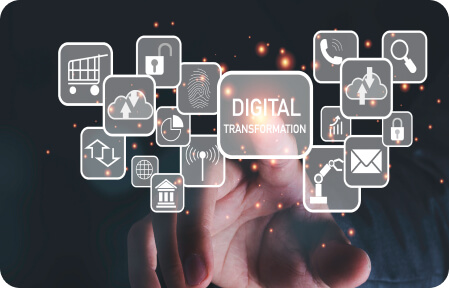The pandemic opened a Pandora’s Box of troubles for SMBs, challenging their will to survive and throwing them into disruption because of a multitude of issues like supply chains, competition from larger companies, and customer retention. But it’s not all bad news.
According to a report titled –, Digital, Resilient and Experience-Driven: How small and midsize organisations can prepare for a new economy – published by Oxford Economics and SAP, “Small and midsize organisations have certain advantages over their larger rivals. They can forge close bonds with customers and employees, adapt readily to subtle shifts in market sentiment, develop innovative services and products at speed, and modify their business models to avoid disruption.”
This ability to be flexible and have the room to adapt is the starting point for every SMB trying to sustain itself in this new economy, that is rising from the ashes of the pandemic. Combined with the right know-hows on what latest business technologies and people-management skills can take them to their goals, SMBs can be fully armed and prepared to not just survive but come out on top in any business environment.
So, what know-hows can the SMB’s equip themselves with to this end? Here are 5 that we think are key.

A Strong People Focus
According to a report by Salesforce on the major trends shaping the future of small and medium businesses – seventy-one percent of SMBs say their customers expect online transactions and nearly the same proportion have an ecommerce presence. At the same time, sixty-seven percent of SMB leaders say community support has been important to their company’s survival. Both these findings point to the fact that engaging customers and employees and building communities of trust are vital trends in SMBs today.
Whether customers or employees, it is clear that top businesses put people first when considering future plans. With the ability to add a more personalised touch to their Customer Experience and Employee Experience, SMBs have an edge over large enterprises. The most important function in the effort to build better employee engagement and customer relations is HR. SMBs that have well-thought out HCM strategies and HRM tools tend to always fare better on the employee engagement meter.
Happier employees are usually also more productive, thereby directly contributing to improved profits and better business performance.
Hand-in-hand with good employee experience is also developing a strong employee training program that empowers them and improves their capabilities to grow. A well-trained workforce is also crucial to being able to provide a better customer experience. With improved customer relations, it goes without saying that your business will be set to soar.
It is knowing what and how to transform that form the key components of success in any SMB.
Take the Lead in Digital Transformation
It is a known fact that one of the biggest revelations of the pandemic era was the efficiency of digital tools. The SMBs that took note and leveraged this trend have risen to the top in the new post-pandemic economy.
Whatever the financial performance, most businesses today are recognizing the digital revolution as their way forward and making plans to progress on their digital transformation in the coming years. According to the Oxford Economics and SAP report, leading SMBs are further along on average, with 42% having made at least “substantial progress,” as opposed to only 18% of average SMBs.
Taking advantage of tech breakthroughs and advancements, like blockchain, AI/deep Machine Learning, Analytics and Automation can give a distinct edge to the operations in your small or medium-sized business by saving you time and cutting costs by replacing tedious, time-consuming tasks with intuitive, efficient tech.
The efficiency of tech also means that you are creating a forward-looking business, with employees who are using their time for more productive tasks and your business has a future-ready appeal that makes it attractive to investors and clients alike.
Leading SMBs are further along on average, with 42% having made at least “substantial progress,” as opposed to only 18% of average SMBs. Like with every kind of transformation it is important for SMBs to identify the key areas that need improvement and incorporate strong HCM solutions that can help integrate the transformation at all levels.


Leverage Business Analytics
Data analytics is the new power tool for all businesses. With the kind of data holding and processing services and capabilities available today, the sky is the limit to what you can do with the analytics power at your disposal.
On the face of it, it may seem that SMBs are at a disadvantage when it comes to preparing and accessing the data they need, to make informed decisions. However, as it turns out, if you are able to equip your business with the right analytic tools, strategically deployed, then your business size will not hold you back from getting all the answers your need for success.
Top performing SMBs have ensured that they have the ability to make analytics-based decisions. Small and midsize organizations must re-evaluate the scope and scale of information collected from customers, internal sources, and third parties—and ensure they have the tools and skills they need to make proper use of it.
What business analytics gives you is better metrics, and subsequently the ability to get sharper and more accurate reports across the board. For example, HR metrics like attendance and performance that are configured for all kinds of work situations – be it in-office or remote work. Armed with such information, SMB leaders can make more informed decisions that can have a direct impact on the growth of their business.
ESG Strategy and Climate Consciousness
The pandemic has opened our eyes to our vulnerabilities when it comes to socio-environmental disasters. This has in turn, magnified the need to have a greater focus on our business responsibilities towards the environment. A full-fledged, comprehensive Environmental, Social and Governance (ESG) strategy has been the way forward in this respect for most big businesses. But for small and medium-sized businesses too, this is a great way to improve their business profile and while doing so, pledge meaningful action in favour of the planet.
The triple bottomline of people, profit, planet has become the foundation of many business operations. Leveraging people to benefit the planet and giving equal importance to all three aspects has taken precedence over a blind pursuit of profits. The adoption of a robust ESG strategy suited to their size and capacity, can serve to impress investors as well as employees alike. There is a true sense of embracing the future when you align your business motives to the goals of building a safer and healthier environment for work and living.


Stay Agile
Charting a way forward, all SMBs should learn from the lessons of the pandemic. By nature, it is easier for smaller businesses to display the kind of grassroot resourcefulness needed when crisis strikes. A shift in production goals, a quick transition to remote work, a seamless integration of tech and digitalization – the agility needed for pivoting goals based on situations is something SMBs can easily possess.
At the same time, it is important they remain open to any kind of change and see opportunities even in difficult situations. Focusing on the right outcomes can often open doors to the right paths. For this, it is also useful to partner with the right kind of business that can complement and augment your own. Recognizing this kind of partnership is also a crucial know-how that can help small and medium-sized businesses stay on top in the new, post-pandemic economy.
ZingHR prides itself in partnering and providing just the kind-of outcome focused support that can drive SMBs to their business goals. Our range of HCM solutions cover not just simple HR transactions but also address vertical specific issues, by creating custom modules to help your business achieve its true potential.




